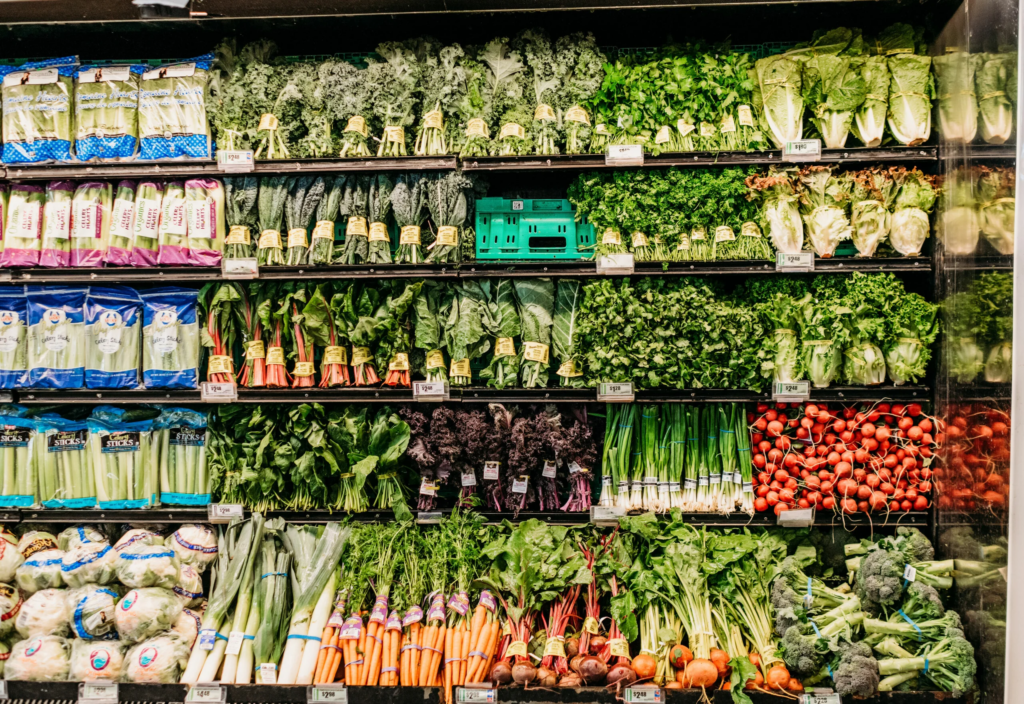7 small changes that can bring down your grocery bill big time-; Are you tired of overspending on groceries every week? Do you find yourself constantly blowing your budget at the supermarket? Well, it’s time to take control of your financial management and start making some small changes that will have a big impact on your grocery bill. In this blog post, we’ll share with you seven easy ways to bring down your grocery costs without sacrificing quality or nutrition. From shopping in bulk to avoiding expensive restaurant meals, these tips will help you save money while still enjoying delicious home groceries. So let’s dive in!
Shop for groceries in bulk
Buying groceries in bulk can be a great way to save money on your grocery bill. When you buy in larger quantities, the cost per unit goes down, which means you’ll end up spending less money overall. But shopping for groceries in bulk requires some planning ahead and careful consideration.
First, make sure you have enough storage space at home to store all of your bulk purchases. You don’t want to end up with a pantry or freezer full of food that you can’t use before it spoils.

Next, consider buying non-perishable items such as rice, pasta, and canned goods in bulk. These items have a longer shelf life and won’t go bad quickly like fresh produce or meat.
When buying fresh produce or meat in bulk, make sure you have a plan for how you will use them before they spoil. Consider freezing meat into portion sizes for future meals or using vegetables to meal prep dishes that can be frozen for later.
Buying groceries in bulk can be an effective way to save money on your grocery bill if done correctly. Just remember to plan ahead and only purchase items that you know you will use before they spoil!
7 small changes that can bring down your grocery bill big time- Compare prices at different stores
One of the best ways to save money on groceries is by comparing prices at different stores. Each store has its own pricing strategy, and you’ll often find that some items are cheaper at one store while others are more expensive.
To start comparing prices, first make a list of the items you need to buy for your meals. Then, visit several grocery stores in your area and take note of their prices for each item on your list.
Don’t forget to factor in any sales or discounts offered by each store as well. These can significantly impact the final cost of your groceries.
While it may seem like a hassle to visit multiple stores, taking the time to compare prices can save you a lot of money in the long run. Plus, many stores now offer online shopping with free delivery or curbside pickup options which can make comparison shopping even easier!

Remember that financial management begins at home so make sure you’re getting the most bang for your buck when it comes to buying groceries!
7 small changes that can bring down your grocery bill big time- Choose the right type of food
Choosing the right type of food is crucial when it comes to saving money on groceries. One great way to do this is by purchasing seasonal produce. Seasonal fruits and vegetables are often cheaper because they are abundant during that time of year, making them easier for farmers to harvest and sell.
Another tip for choosing the right type of food is buying generic brands instead of name-brand products. Generic brands offer similar quality at a lower price point, helping you save big on your grocery bill.
When it comes to meat, consider buying cheaper cuts or opting for plant-based protein sources like beans or tofu which can be just as nutritious and filling. Additionally, try shopping in bulk for non-perishable items like rice or pasta which can last longer and save you money over time.
Keep an eye out for sales and discounts while shopping for groceries. Many stores have weekly deals on certain products that can help you stretch your dollar further. By being mindful about the types of foods you buy, you can make small changes that will bring down your overall grocery bill significantly.
A7 small changes that can bring down your grocery bill big time- void impulse buys
Avoid Impulse Buys
One of the biggest culprits that can blow your grocery budget is impulse buys. Those unplanned purchases that catch your eye as you walk past them and seem like a good idea at the time, but in reality, they just add up to your total bill.
To avoid impulse buys, it’s important to have a list and stick to it. Before heading out to the store, plan what items you need for the week or month ahead by writing them down on a piece of paper or using an app such as AnyList or Out of Milk.
Another helpful tip is to shop alone if possible. When shopping with others, there’s often pressure to buy more than necessary or give into their own impulses which can lead you astray from your budgeting goals.

It’s also essential to avoid going grocery shopping when hungry because when we’re hungry our willpower tends to weaken, and we are more likely to make impulsive decisions based on cravings rather than practicality.
By avoiding impulse buys and sticking strictly within planned groceries list each trip, not only do you save money but also reduce food waste while practicing sound financial management techniques for home groceries.
Plan your meals ahead of time
One of the biggest expenses that most people have is their grocery bill. It can be quite frustrating to see how much money you are spending on food each week, especially if you are trying to save money for other things like vacations or retirement. One way to reduce your grocery bill significantly is by planning your meals ahead of time.
When you plan your meals ahead of time, you will know exactly what ingredients and foods you need for the week. This means that you won’t be buying random items at the store that end up going bad before you use them. You can also take advantage of sales and coupons when planning out your meals.
Another benefit of meal planning is that it allows you to make healthier choices. When we don’t plan our meals, we often end up choosing convenience foods or eating out more frequently which tends to be less healthy than home-cooked meals.
Meal planning does require a bit of effort upfront but saves lots in terms of both time and money later on. Start by looking at recipes with similar ingredients so that nothing goes wasted or uneaten.
Some good tips include cooking larger batches over weekends; freezing leftovers into individual portions for quick dinners; keeping staple pantry items stocked; using reusable containers instead of disposable bags or wraps while packing lunches etc.
Meal-planning helps financially as well as promotes wellness – making it an important element in financial management and home groceries!
Use meal kits
Meal kits have become increasingly popular in recent years, and for good reason. Not only do they provide a convenient solution for busy individuals or families, but they can also save you money on your grocery bill. Meal kits typically come with pre-portioned ingredients and recipes that are designed to minimize waste. This means no more buying a whole bunch of parsley when you only need a few sprigs.
Additionally, meal kit companies often source their ingredients directly from farms or suppliers, cutting out the middleman and reducing costs. They may also offer promotional discounts or free trials which can further reduce expenses.
Another benefit of using meal kits is that it can help prevent food waste in households. By providing just enough ingredients for each recipe, there’s less chance of excess food going bad before it gets used up.
Using meal kits can be an effective way to manage your finances while still enjoying delicious home-cooked meals without breaking the bank.

Avoid expensive restaurant meals
By following these 7 simple tips, you can bring down your grocery bill significantly. Financial management starts from home and the grocery store is one place where we can make a big difference in our spending habits. By shopping in bulk, comparing prices at different stores, choosing the right type of food, avoiding impulse buys, planning meals ahead of time and using meal kits, you can save money and reduce waste.
Avoid expensive restaurant meals as much as possible. Eating out frequently not only puts a dent in your wallet but also affects your health due to high-calorie intake. Cooking at home with fresh ingredients not only saves money but also provides better nutrition for you and your family.
Remember that small changes can lead to significant savings on your grocery bill over time while improving your overall financial well-being. So take control of your spending today by implementing these easy steps towards smarter financial management at home!
1. Shop for bulk items whenever possible to reduce your grocery bill.
2. Compare prices at different stores to find the best deals.
3. Choose nutritious foods that are affordable and easy to cook.
4. Avoid impulse buys and stick to a budgeted shopping plan.
5. Plan meals ahead of time using recipes or meal kits and save time in the kitchen.
6. Store food properly in order to minimize waste and save space in your fridge and cabinets.
7. Exercise self-control when dining out and choose smaller portions instead of expensive restaurant meals.








